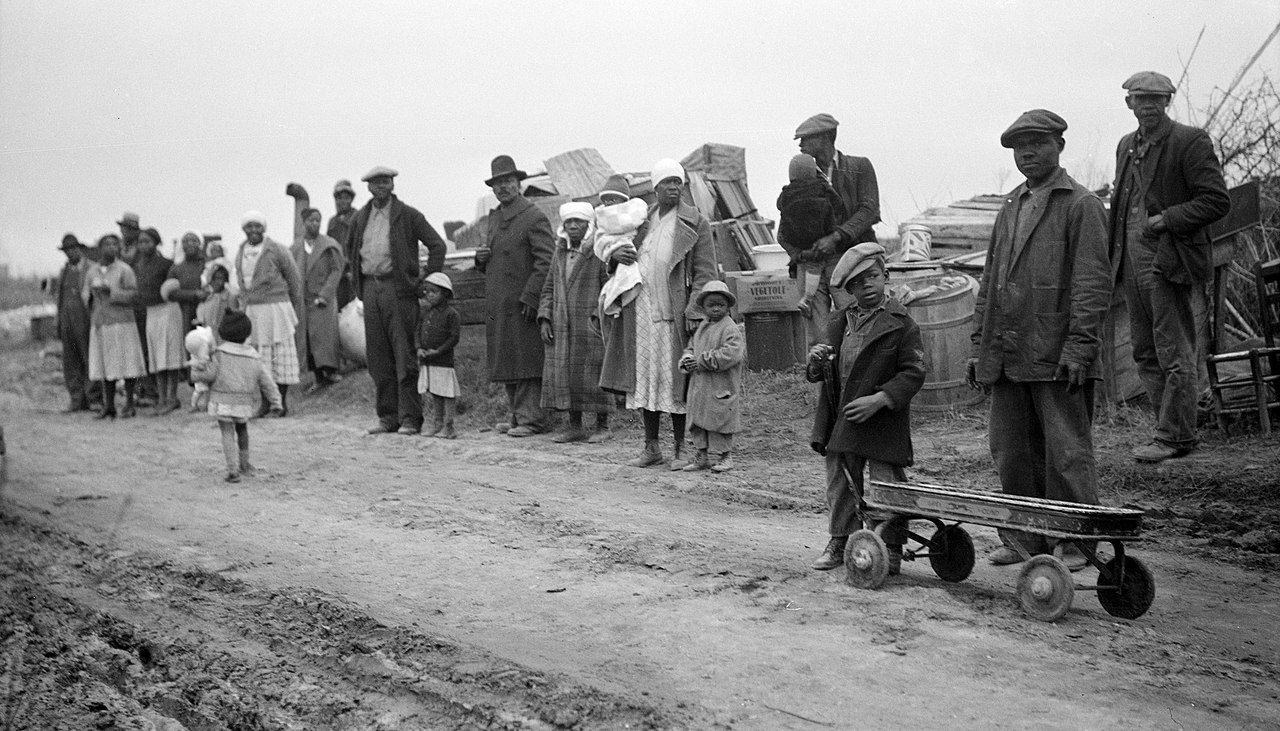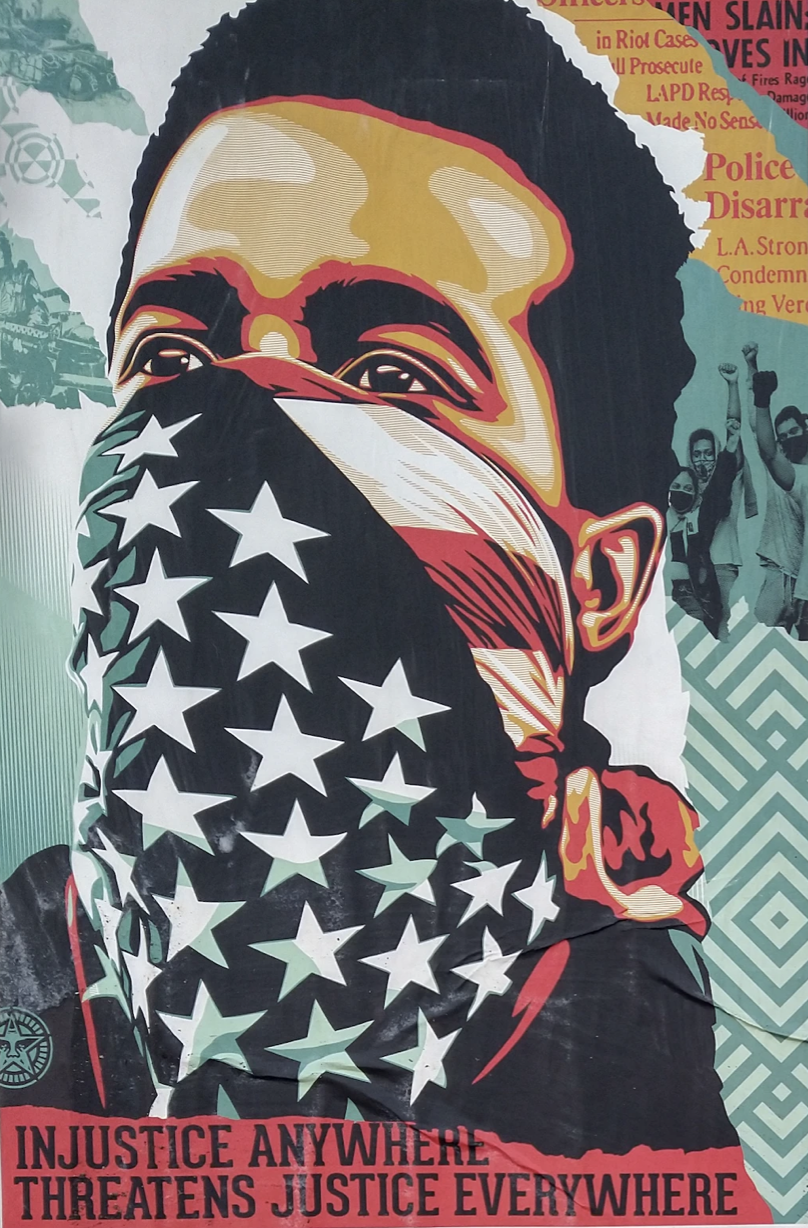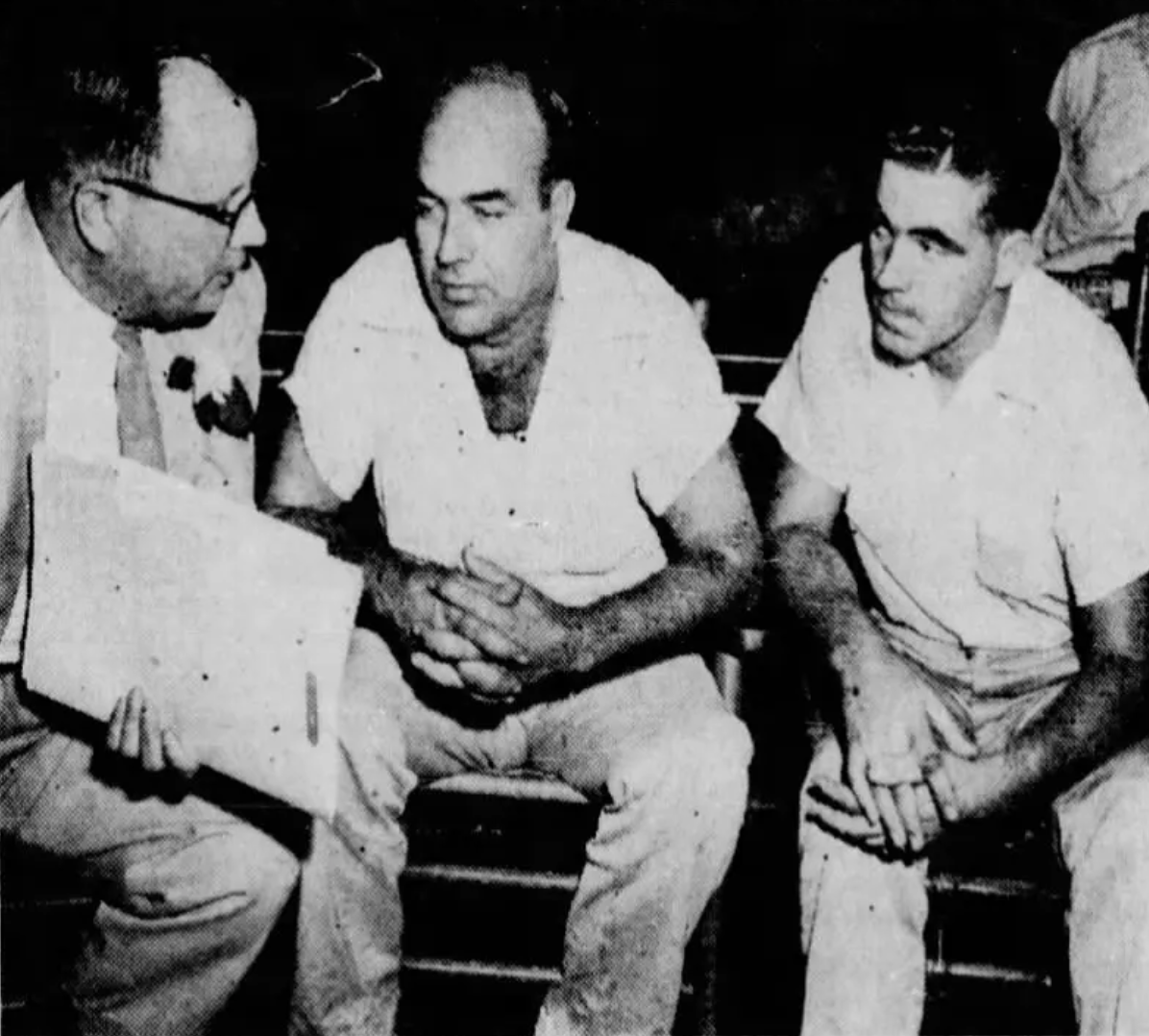|
OHF Weekly, Vol. 5 No. 18: Editor’s Letter, “Did Karma Ever Catch the Emmett Till Killers?” and a quote by Mamie Till.
Editor’s Letter💛 Hey Reader, Ah, the American Dream. Health, wealth, and happiness! Hotdogs, apple pie, and Chevrolet! Work hard, and you can be anything you want to be! Only if you’re white, though. In my last letter, I discussed how pretty much all of us white folks are racist on some level (intentionally or otherwise), and how our inability to admit to it helps to further perpetuate racism. One important way in which this happens is through the many ways in which we work to keep Black people poor via systemic racism in our financial, housing, education, governing, and judicial systems. (If you read my previous article and you still don’t believe most of us white folks are racist, simply ask around about how they feel about reparations for enslavement; few know the stats and facts, but you’ll hear a whole lot of, “These people weren’t even around during enslavement!”)  Families of evicted sharecroppers of the Dibble plantation near Parkin, Arkansas, who were legally evicted during the week of January 12, 1936. The court found in favor of the landowner, who charged that by membership in the Southern Tenant Farmers Union they were engaging in a conspiracy to retain their homes. The photograph was taken just after the evictions — at gunpoint — before the families were moved into a tent colony. Public Domain. Source: Wikimedia Commons. While I’m no more eager to spend billions of dollars than the next guy, sometimes you just have to suck it up and do what’s right. Here’s why. Obviously, enslaved Black Americans had no possessions of their own, so let’s start with the end of the Civil War. One might think that you’d give an enslaved person at least enough to get started in life once they were freed, but they were turned out of their “homes” to fend for themselves with nothing to their names (let alone, say, recompense for all the suffering via kidnapping, raping, lynching, tearing apart families…or even their labor from the profits they enabled for their enslavers). Thanks for NothingWhile they were initially offered forty acres and a mule, this was quickly rescinded. Many of them ended up working as sharecroppers for the very plantations they’d been freed from, because they had little (really no) choice. (Ironically, reparations were actually paid to a few of the plantation owners due to their loss of “possessions.”) As you might imagine, these early freed Black people had nothing to leave to their progeny when they passed. In the years since then, which might seem like a long time but really isn’t when you’re talking generations, racism has continued to take a toll on Black families’ finances. There are several ways in which people accumulate wealth: higher paying jobs that allow for savings; investment in assets that appreciate, with home ownership being the primary asset for most families; and inheritance. An inheritance increases wealth by more than $100,000 for white families and only $4,000 for Black families.
Inherited wealth is the biggest way in which families continue to grow their savings. We’ve already established that the first freed Black people received nothing, so ground zero was literally zero inheritance. When Black people did manage to increase their savings over time—say, for example, the thriving Black community in Wilmington, North Carolina, in the late 1800s or “Black Wall Street” in Tulsa, Oklahoma, in the early 1900s—White folks became enraged, burning down their houses, driving them out of town, and/or murdering them. How much difference does inheritance generally make today? At the median, an inheritance increases wealth by more than $100,000 for white families and only $4,000 for Black families. (“Receiving an inheritance helps white families more than black families,” Economic Policy Institute, 2017) Specifically, the average wealth of a white family without inheritance was $183K in 2015, and just $34K for Black families. White families who inherit had savings of $287.5K, while Black families with an inheritance averaged $38K. And because inheritance is generally taxed very lightly, the gap is even wider. Overall, the net worth of the average white family is ten times that of a Black family. (“Why we need reparations for Black Americans,” 2020) Housing and FinanceIf home ownership is one of the main ways in which people accumulate wealth, family loans or gifts (see “inheritance” above) are the most common way people gather the down payment—so most Black people are locked out yet again. With a net worth of $34 - $38K, you can see the difficulty. But that’s not the only way Black folks miss out. The term “redlining” originally comes from New Deal home ownership incentives in the 1930s and the GI Bill in the 1940s, when the government drew actual red lines around Black neighborhoods and labeled them as “risky investments”—making Black veterans and homeowners ineligible for government insurance programs and killing property values. Today it has come to mean more generally the many ways in which racism in the housing and financial industries have worked together to minimize Black people’s bank accounts. Specifically: - Studies have repeatedly shown how Black people are often hit with higher loan rates than white folks with comparable income, credit ratings, etc., meaning they pay more to borrow the same amount of money.
- Homes owned by Black people are often appraised at lower rates than white-owned homes, regardless of location or condition. It’s common for Black folks to “white” their house and receive a higher estimate.
- Although it is illegal to discriminate by race, white homeowners and realtors often conspire to keep Black buyers out of white neighborhoods, continuing segregation and keeping Black people from purchasing assets that appreciate more quickly.
 The effects? For Black people, home ownership in 2016 was at forty-two percent, compared with 73% for whites. In addition, Blacks tend to own less valuable homes worth just $94,400 on average in 2016, versus $215,800 for whites. (“African Americans’ economic setbacks from the Great Recession are ongoing – and could be repeated,” Theconversation.com, 2019) The bigger issue is that assets like inheritance and home ownership are our padding through the ups and downs in life. For example, a heart attack or cancer treatment can cost tens of thousands for treatment and possibly result in the loss of a job. And, most people know about when the housing bubble burst in 2008 and people defaulted on their mortgage rates in droves, but what a lot of white folks don’t know is how disproportionately hard this hit Black folks who had less cushion and were paying higher interest rates to begin with. In fact, while the net worth of a Black family is one-tenth of a white family’s today, it was one-fifth before the Great Recession of 2008. It’s often said that many American families are one disaster away from living in the streets, and that’s especially true for many Black people. According to the National Alliance to End Homelessness, over forty percent of homeless people are Black, even though they are only thirteen percent of the population. Worse, Black families made up just over half (52%) of all families experiencing homelessness in 2019, according to HUD. And in 2016, about 25% of the children in foster care were Black. Education and EmploymentWhite people love to say things like, “Why don’t they [Black people] go to school? Why don’t they work harder? Why can’t they pull themselves up by the bootstraps?” If only it were that simple. The U.S. Census Bureau says that more than twenty-eight percent of Black folks over twenty-five years of age have a bachelor’s degree or higher; but, “White college graduates have over seven times more wealth than Black college graduates.” And, “In fact, white high school dropouts have more wealth than Black college graduates.” (Brookings) According to The Brookings Institution, “Among 25-55-year-olds, about forty percent of Black [people] compared to thirty percent of white [people] have student loan debt. Black [people] also have nearly $45,000 of student loan debt compared to about $30,000 for whites.” (“Why we need reparations for Black Americans,” 2020) Bootstrapping isn’t going to erase racial wealth divides.
And once a Black student graduates, it’s that much harder to get a job, get paid the same salary as a comparably qualified white person, and get promoted. If white folks are being honest, we all know of times when the white candidate won out simply because “they’d fit better into our work culture.” Moreover, we frequently see Black employees in lower-paying positions but fewer and fewer Black faces as we look up the corporate ladder. Bottom line? “Bootstrapping isn’t going to erase racial wealth divides.” As economists William “Sandy” Darity and Darrick Hamilton point out in their 2018 report, What We Get Wrong About Closing the Wealth Gap, “Blacks cannot close the racial wealth gap by changing their individual behavior –i.e. by assuming more ‘personal responsibility’ or acquiring the portfolio management insights associated with ‘[financial] literacy.’” (“Why we need reparations for Black Americans”) The Judicial SystemInequities in the way Black people are treated by the judicial system are, well, infamous. Hopefully, anyone reading this knows about Tamir Rice, Trayvon Martin, Sandra Bland, George Floyd, Breonna Taylor, Botham Jean . . . the list is long. Please know that these incidents are common, rather than exceptions. Black people are stopped at higher rates, searched at higher rates (with less found), arrested at higher rates, charged higher bail, convicted at higher rates, given longer sentences, and killed by police at higher rates (whether armed or not). For Black people, there is little justice in the judicial system.  Now imagine the financial toll. Virtually every other industrialized nation has done away with the bail system, and it hits Black folks hardest because—again—money (or the lack thereof). So, say someone is arrested in a case of mistaken identity, which happens frequently (eyewitnesses are notoriously faulty), and they can’t make bail. They may sit in a cell for a year or two before going to trial (according to the McKinney Law Firm, it is fairly routine for it to take twelve to eighteen months in federal court). During that time they’ve lost their job and their family has lost that income. Even if eventually found innocent, that’s a big, gaping hole in their resume and their experience that can’t be recovered. Additionally, because most of us white folks don’t know many Black people very well, most of what we know is what we hear in the news—and nothing good is ever reported in the news. So in our mind’s eye, “Black people are a bunch of criminals!” and “Why can’t they take care of their crime problem?” In reality, the crime rate is higher among all people with insufficient funds, regardless of color. But because we know lots of white people who aren’t criminals, we assume that those who do are an aberration. So What About Reparations?These are just a few of the snapshots that show how continued racism across virtually every facet of life affects Black people monetarily; one could write many books on each point I summarize in a sentence (and points I didn’t even manage to include!). I suggest educating yourself by googling things like “the effects of race on inheritance” or “predatory lending by race.” While the numbers might vary by the time frame covered or other parameters, you don’t need to be a statistician to see that they’re all horrific. Reparations aren’t a magic wand that would make everything better, but they would at least put Black Americans on a more equal footing with their fellow Americans.
Now let’s get back to reparations—basically, back pay for the descendants of people who were enslaved, as well as loss of income and inheritance due to Jim Crow and other forms of racism. There can be no doubt that this money is long overdue, and not just for enslavement but for the lingering effects throughout every aspect of our culture. And, there is precedent. Although America has a long, storied history of treating “others” unfairly, Indigenous people have received land, money, and other concessions (which is not to suggest they’ve been adequate). Japanese Americans who were interned during World War II received $1.5 billion. Americans—maybe most people—like to think of themselves as basically good. Enslavement has been a stain on our national psyche for hundreds of years, and although there has been progress, it’s been in fits and starts. Right now, we’re moving backwards. Reparations aren’t a magic wand that would make everything better, but they would at least put Black Americans on a more equal footing with their fellow Americans and give them a fighting chance to be successful. Isn’t it time we do the right thing? Love one another. Sherry Kappel
OHF Weekly Managing Editor
NEW THIS WEEKWith the death of Carolyn Bryant, the last living of Emmett Till’s killers, can America surrender even a little of her rage in the absence of Till’s due justice?By Catherine L. Pugh, Esq.  “FACE TWO TRIALS—After their indictment on murder and kidnap counts yesterday, J.W. Milam (center of Glendora, Miss., and his half-brother, Roy Bryant (right) of Money, Miss., conferred with Sidney Carlton, an attorney, in the courthouse at Sumner, Miss. Dates of their trials — one for each count — will be set tomorrow. —Staff Photo by William Sorrels” The Commercial Appeal, Memphis Tennessee, Wednesday, September 7, 1955. Newspapers.comOn April 27, 2023, Emmett Till’s last living killer died. Carolyn Bryant was the lone custodian of America’s taut and bubbled scars — scars that Bryant herself helped beat into the nation’s back, and across her buttocks and thighs. Will those wounds finally begin to quiet, soothed by the cool, dark dirt of her grave? To be clear, the bloodlust for justice will never calm, and the rage hunt never slows. These are things that sunset only when time does, and not so much as a millisecond sooner. The complicit still move among us. For them, there will be no quarter and no peace. From the beginning, these things must be clear. But whether we, each in our own private way, can calm our hearts is a different sort of question. A battle-weary warrior teaches that some rage must roil, and others must go quiet, as not all can occupy first position; that this necessary but fatal weapon kills well, but it also kills indiscriminately; that we harness that tool and use discretion to protect both warrior and mission. And so, does the death of the Maven of Hate leave room to wave off this poison? Perhaps. Knowing whether karma ever caught up with Emmett Till’s killers would certainly help with that answer. The Emmett Till story is a familiar one. In 1955, Carolyn Bryant falsely accused fourteen-year-old Emmett Till of catcalling. Her husband, Roy Bryant Sr., and brother-in-law, J. W. Milam, kidnapped young Till in response. Well into the night did those two men beat him. They beat him so badly, in fact, one of his eyes popped from its socket. Milam forced Till to strip, and one by one, the child removed his socks, shoes, shirt, pants, and undershorts until he stood before the men—naked. They were never able to scare Emmett, Milam said later of that night. So Bryant and Milam just filled him so full of poison that he was hopeless. Finally, the two men shot Till in the head, neck-anchored him with barbed wire to a seventy-five-pound gin fan, then scuttled his corpse in the nearby Tallahatchie river. Read the full article at OHF Weekly.
Chat with UsHave you tried our new inline chat module? We’ve recently added a much simpler way to interact with our editorial team and writers. At the end of each newsletter and individual article you’ll find a “Member Discussion” header. If you’re a subscriber, simply sign in to your account and you’re good to start or join the conversation. It’s that easy. See you in the comments!
Final Thoughts
|






